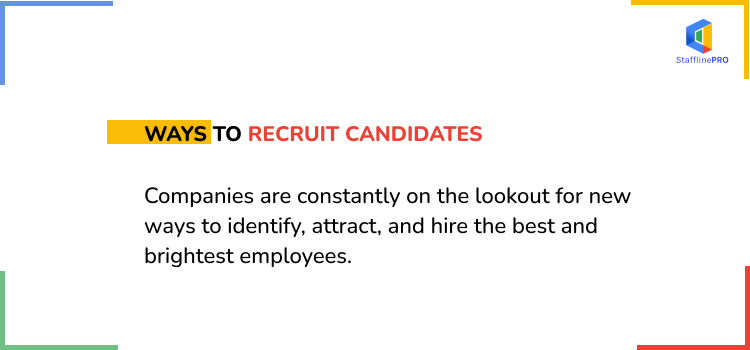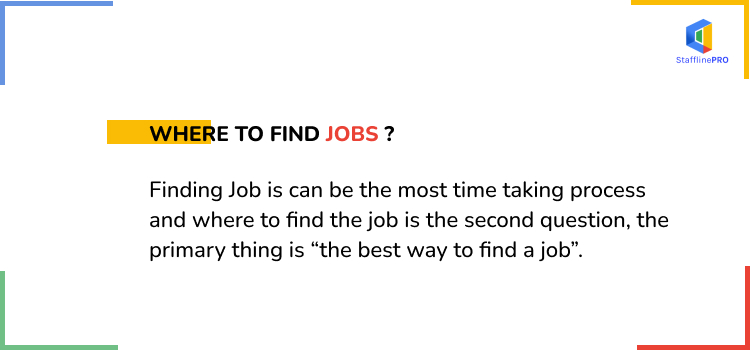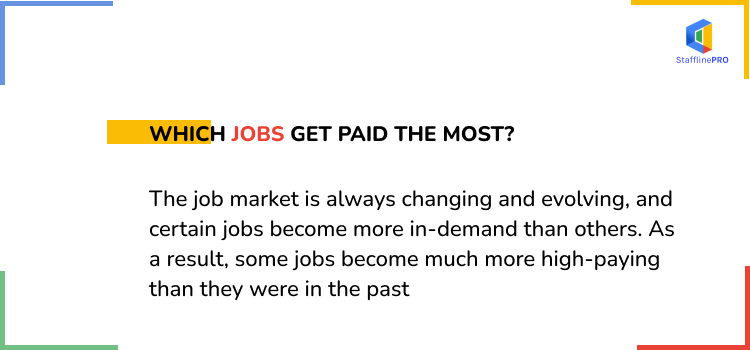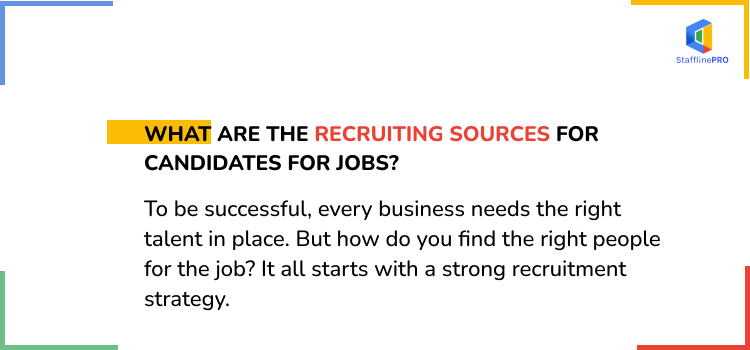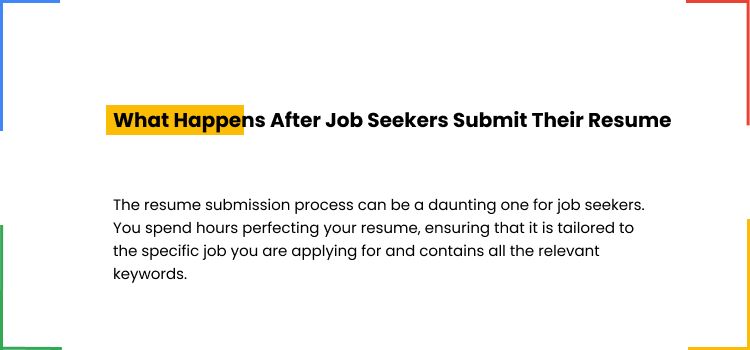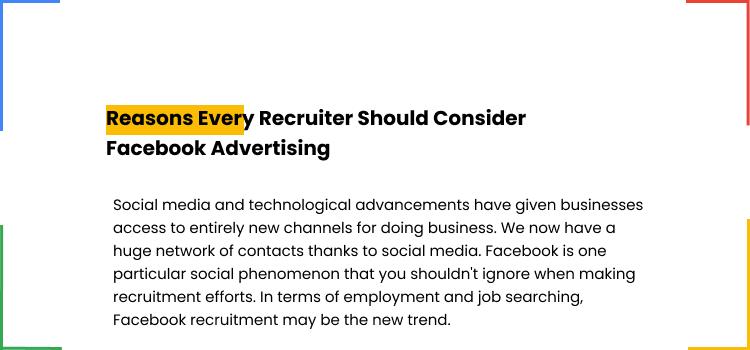How to attract the best talent in the current job market?
As the job market continues to tighten, attracting and retaining the best talent has become more important than ever before. Companies are constantly on the lookout for new ways to identify, attract, and hire the best and brightest employees.
While the talent pool may be smaller than it was a few years ago, there are still plenty of qualified candidates out there. So, how can you make sure that your company is attracting the best talent?
Talent hunting is a process that requires time, effort, and resources. However, it is possible to attract the best talent in the current job market. With the right strategy, you can find the perfect candidate for your open position.

A strong recruitment strategy can help you attract the best talent
In today’s competitive job market, it’s more important than ever to have a strong recruitment strategy. The right strategy can help you attract the best talent, and it can also help you save time and money in the long run.
There are a few key components to a strong recruitment strategy. First, you need to identify your company’s specific needs. What kind of workers are you looking for? What skills and experience are required? Once you know what you’re looking for, you can begin to identify where to find the best candidates. This might mean advertising in specific places or using specific recruitment agencies.
You also need to make sure that your recruitment process is efficient. This means having a system in place for screening and interviewing candidates. It also means making sure that you follow up with candidates in a timely manner.
Finally, you need to be prepared to offer a competitive compensation and benefits package. This will help you attract the best candidates to your company.

Best strategies to attract top talent
Here are the 8 best strategies to attract top talent
Recruitment strategy #2: A broader job vacancy
In order to identify the most suitable individuals for a role within your company, it is essential to have an effective recruitment strategy in place. When designing your recruitment strategy, it is important to consider the following:
– The type of role you are recruiting for
– The skills and experience you are looking for
– The number of candidates you need to interview
– The time frame you have to fill the role
There are a number of different recruitment strategies you can adopt, and the most suitable option for your business will depend on your specific needs and requirements. To learn more about the different types of recruitment strategies.

Recruitment strategy #2: Campus recruiting
The campus recruiting strategy has been a popular means of recruitment for many years. Companies send their representatives to colleges and universities to meet with students and encourage them to apply for jobs.
However, the campus recruiting strategy is not without its faults. In recent years, there has been a growing trend of companies using social media to recruit employees. This has led to many students feeling that they are being bombarded with job offers and that the process is becoming increasingly impersonal.
In this article, we will take a look at the pros and cons of the campus recruiting strategy and explore whether or not it is still an effective means of recruitment. The best ways to attract these young talents are:
Get featured in campus newspapers
Conduct workshops and seminars in different colleges to showcase your company and the career opportunities you have
Sponsor college festivals and other cultural events
Invite students for an industry tour to learn about the company structure and functioning and make them interact with a few of the eminent stakeholders of your company
Offer internship programs where interested students can intern with your company
Have a different recruitment team for these fresher’s who themselves are young professionals and understand the budding minds.

Recruitment strategy #3: Be flexible
Flexibility is more important than ever in the current business climate. With the COVID-19 pandemic continuing to cause major disruptions around the world, companies are having to adapt their operations at an unprecedented rate.
In order to cope with the ever-changing landscape, businesses need to be more flexible in their recruitment strategy. This means being open to hiring remote workers, contractors, and freelancers. It also means being willing to consider candidates from a wider range of backgrounds and with a wider range of skills.
By being flexible in your recruitment strategy, you will be able to weather the storm and come out the other side stronger than ever before

Recruitment strategy #4: Add perks
It is no secret that the war for talent is fierce and that companies are looking for any competitive edge they can find to attract and retain the best employees. In recent years, we have seen a trend toward employers offering additional perks and benefits to their employees.
While perks like free food and gym memberships are nice, they are not enough to attract and retain top talent. In order to be truly competitive, companies need to offer perks that are meaningful and that will make a difference in the lives of their employees.
Some examples of meaningful perks that companies can offer include flexible work arrangements, student loan repayment assistance, and paid parental leave. Keep reading to learn more about the benefits of offering perks to your employees!

Recruitment strategy #5: Organize competitions
Organizing competitions is a great way to increase the engagement of potential candidates and bring in new talent. It can also help you identify the most capable candidates for the job.
When done correctly, competitions can be a great way to source new talent and identify the most capable candidates for the job. Here are a few tips on how to make sure your competition is successful:
– Set clear objectives for the competition.
– Make sure the prize is attractive and relevant to the participants.
– Promote the competition widely.
– Make the competition challenging but achievable.
– Provide feedback to the participants.
Follow these tips and you’re sure to find competition a valuable addition to your recruitment strategy!

Recruitment strategy #6: Social media recruiting
It is now more important than ever for companies to have a well-defined recruitment strategy. With the ever-changing landscape of the workforce, it can be difficult to keep up with the latest trends. One trend that has been on the rise in recent years is social media recruiting.
Social media recruiting is the process of using social media platforms to identify and attract candidates for open positions. This can be done by creating and sharing content that showcases your company culture and values, or by directly reaching out to potential candidates.
If you are looking for a new way to reach talented candidates, then social media recruiting may be right for you. Keep reading to learn more about this trend and how to use it to your advantage.

Recruitment strategy #7: Employee referral program
The employee referral program is a type of recruitment strategy where employees are given incentives to refer candidates for open positions in their company. The main aim of this program is to reduce the time and cost of recruiting new employees.
In most cases, the employee who refers a candidate is given a monetary bonus if the candidate is hired. The amount of the bonus varies from company to company. Some companies also have non-monetary rewards, such as extra vacation days.
Employee referral programs have been shown to be an effective way to recruit new employees. They can improve the quality of hires, decrease the time to hire and reduce recruiting costs.

Recruitment strategy #8: Shorter time to hire
It takes an average of 52 days to hire a new employee. This number has been increasing over the last few years, largely due to the increasing number of job applicants. The time it takes to hire a new employee can have a significant impact on a company’s bottom line.
A lengthening time to hire can be caused by a number of factors, such as a lack of available talent, a lengthy hiring process, or a limited budget. In order to combat these issues, companies need to implement a recruitment strategy that will help them shorten their time to hire.
In this article, we will discuss some of the things that companies can do to reduce their time to hire. By implementing these strategies, companies will be able to improve their bottom line and keep their businesses running smoothly.






